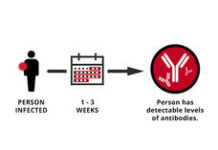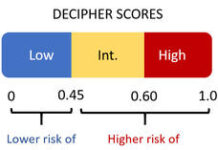One of the scariest things about breast cancer is its ability to metastasize to other areas of the body seemingly without warning. Once it has metastasized, it becomes stage IV breast cancer and is much harder to treat and more likely to kill the person it lives inside, particularly once it settles in a vital organ. Now, however, researchers are looking at ways to predict metastasis before it occurs. They hope that their findings will also eventually help them prevent metastasis from occurring.
The study, out of Tel-Aviv University, was led by Professor Neta Erez, Chair of the Department of Pathology at the Sackler Faculty of Medicine, and the researchers at her laboratory, Dr. Ophir Shani and Dr. Yael Raz. Other researchers from Tel Aviv University, Tel Aviv Medical Center (Ichilov), Sheba Medical Center, and the Weizmann Institute were also involved. Their findings were published in the journal eLife.

The researchers discovered that healthy lung tissues, more specifically in connective tissues known as fibroblasts, make small changes in preparation to receive cancer metastases. These changes could be used to predict metastasis, and eventually, treat a patient before metastasis occurs.
In the study, the researchers compared sequencing results from samples of healthy lungs, lungs with micro-metastases that could not be identified using existing clinical tools, and lungs with larger metastases. Then they identified differences between these samples, specifically in the proteins that start the “rewiring” process in the fibroblasts. They discovered that the protein MYC, which is known to drive the acceleration of the division of cancerous cells, also plays an important role in changing the tissues of the fibroblasts to prepare them for the reception of metastases.

So, for the first time ever, we’ve been able to characterize the process that leads to metastasis and identify the changes we could look for to predict metastasis before it occurs.
“In a normal situation, fibroblasts play a central role in healing wounds and injury to the lungs, but recent studies revealed that cancer is successful in recruiting them and causing them to produce a supportive environment for it,” says Professor Erez. “Within the framework of the present study, we performed sequencing of all the genes which are expressed (transcriptome sequencing) in fibroblasts taken from the lungs of mice in a model of breast cancer metastasis.”

Metastasis can appear in the body even after a person’s primary tumor has been removed and they’ve finished treatment for their primary cancer. It can occur even several years after a person is declared cancer-free, and methods currently used to follow up can only locate metastases when they are very large and the disease has reached an advanced stage. Being able to discover them much earlier could save countless lives and prolong even more.
Professor Erez’s group of researchers has been interested in investigating a phase known as the “black box“—a time period after a patient has apparently recovered and before the appearance of metastasis. During this time, little is known about how metastasis occurs, but the team is hoping to understand it better, and it appears they may have stumbled on a little piece of the puzzle.

Even the simple knowledge that tissues must prepare themselves to receive metastasis is a vital clue that might help us identify future metastasis sites and hopefully prevent the spread of cancer before it happens, or at least treat it before it becomes too large.
“We believe that in the future, our findings can aid in the identification of the metastatic process even before the disseminated cancer cells thrive and colonize the metastatic organ, with the purpose of providing prophylactic treatment,” Professor Erez summarizes. “Such treatment, that will prevent the development of metastases, may save the lives of millions of people, worldwide.”
These small steps forward in cancer research could eventually amount to one large leap forward in the treatment and survival rates of breast cancer and other cancers. We at the Breast Cancer Site are excited to see the future of where this research takes us!
![]()
Provide Mammograms
Support those fighting Breast Cancer at The Breast Cancer Site for free! →
Whizzco Source








